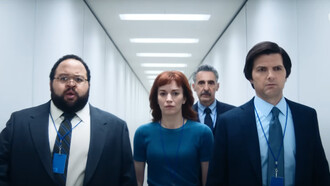The magnificent oratorio that we all know and many enjoy at Christmas is probably one of the most performed; therefore, one of the most listened-to musical works in history. His author like all the popular geniuses knew how to adapt part of his work to the demands of the public without losing his identity along the way. Discovering what the world wants or better yet needs is an art that does not always accompany the artists.
Georg Friedrich Händel was born in Brandenburg, but he moved to the Georgian London of the XVIII century in 1713. Like many other volunteer emigrants, he left with a heart full of hopes and dreams. He was a privileged immigrant in England. At 28 years of age, he had already known success with his aria Lascia ch'io pianga, an exquisite ode to freedom which he had already adapted to Rinaldo his most recognized opera before having moved to the island. Händel, arrived with the heart, the head, and the hands full.
He became a British citizen, and his remains rest since 1759 in an unforgettable mausoleum in Westminster Abbey, where many other immigrants were also adopted as British with their last goodbye. But his stay was not always successful and pleasant. He went through a period of unpopularity and disrepute fueled by ruthless criticism that forced him to do something to reinvent himself.
He succeeded again in the most curious way for the time. After having written 46 operas, he decided to dedicate himself to writing oratorios in English for the first time in history. Of all of them, the Messiah is the most prestigious. In 1741, with a biblical text compiled by Charles Jennens, Händelcomposed the most glorious music ever written in 3 parts and in honor of the arrival, life-death, and resurrection of Jesus Christ.
In the first part, he remembers the answer to the Jerusalem people’s pleas not just as a simple promise, but as a reminder of “The Prophecy”. A son is given, “…and he will be called Wonderful Counselor, Mighty God, Everlasting Father, Prince of Peace”.
Händelis delightful as he projects the image of a little Jesus in the arms of the Virgin Mary in all its glory, surrounded by those who genuinely adore him; Joseph, humble shepherds and other kings, the kings who know and recognize the King of kings.
And "how beautiful are the feet of those who preach the Gospel of peace," Händel tells us in the second part. The author refers to the feet of those who follow Jesus and imitate his steps. It does not refer to preaching from the pulpit or a pedestal, but to the feet firmly placed on the ground, breathing the message of the Messiah, in a day-to-day living.
First, the steps of a little Jesus with innocent baby feet. And at the same time, the steps of a man who walked to preach the Love of God, without anyone stopping him. The footsteps that lived a mark on our world like no one has ever done before. The steps of the Lavapiés, who walked on water. The steps of the feet that were pierced by the nail that man drove. The steps of the feet that walked triumphantly over death. The footsteps of the one who still walks by our side and carries us frequently, when darkness is closing in on us.
With the passion and death of Jesus Christ comes a splendid “Hallelujah, Hallelujah!”, which celebrates the resurrection of the Messiah and therefore his message. “And he shall reign forever and ever”, the lyrics glorify while the author takes us to the third part of the oratory, far from being the end is only the beginning. The eternal life begins with the Messiah and his life as an example.
The author knew that such a message with all its power could not be presented exclusively in the royal palaces of the time. The play was for the people. At the end of his original partiture Händel wrote SGD or Soli Deo gloria. The oratory was well-received, first in Dublin in 1742 and then eventually in London, especially in Covent Garden in 1749. The money raised went to charity.
But the fame of Händel's Messiah oratory came after 1750 with its annual presentations at The Foundling Hospital in London. It had been founded in 1739 by the ship captain and philanthropist Thomas Coram, to receive care for and educate abandoned or orphaned infants and that increased considerably at that time and in that city.
Slowly, the tradition of Händel's Messiah concert every year on Easter was adjusted to the annual Christmas celebrations of hospices and charity hospitals to raise funds. In large capitals being seen at least once a year, in one of those events lavishing generosity for those most in need it became fashionable. The custom remains nowadays. Occasional charity is still socially rewarded.
Despite how modern and vital the message of the Messiah's is there are entire nations that are still waiting for another one. Somehow, modern society continues to wait for a messiah to arrive and rescue us from the problems we face. Many, still believe that the new messiah will appear as a religious man, businessman, general or ruler. Even though the Messiah that Händel glorify, that has already expelled the merchants and money changers from the Temple and responded to the Pharisees: "…render therefore unto Caesar the things which are Caesar's; and unto God the things that are God's".
Christmas is for many, the noblest time of the year. An opportunity for a personal reflection. Sharing with loved ones is a different and special occasion each December. This Christmas let us seek the message of the one and only true Messiah who lives in our hearts and behave in consequence before us and with others. We should not wait for false messiahs or prophets to come supposedly to solve our existence. Contributing to collective welfare is a noble goal. Do not leave to others the decisions that affect us all. Getting involved in improving our own lives and those of others is essential. The Love of God leaves no doubt.
Happy Holidays! And enjoy Händel's Messiah at Christmas, Hallelujah, Hallelujah!















